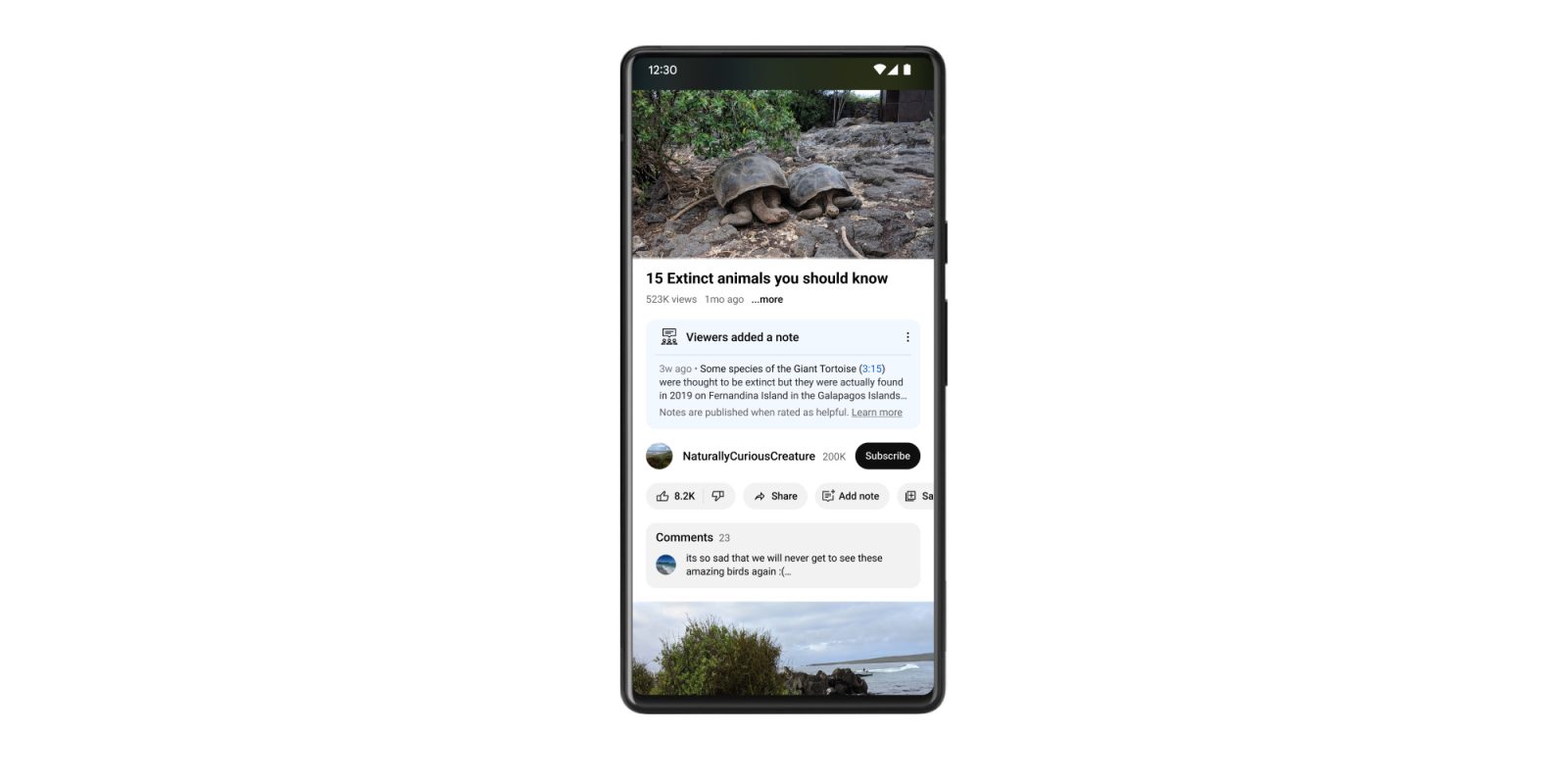
The internet is full of misinformation and, to help combat that, YouTube is testing out a new feature that lets users play a part in setting the record straight, and it works just like Community Notes on Twitter/X.
Before it was “X,” Twitter introduced a feature called Community Notes which allowed a portion of users to provide information under a misleading or confusing tweet/post to clarify it, usually also providing links to offer additional context. It’s a very valuable, if still not perfect, feature for helping to mitigate the spread of misinformation.
Now, YouTube is getting something similar.
While it doesn’t have a name just yet, YouTube is sending invitations to a pilot program for a new feature that seems to work a lot like Community Notes.
Users who find a video that is “confusing or inaccurate” can submit a note to clarify the video, with others in the program able to review those contributions and, as a group, decide on if a note is shown on a video. If a note is approved, it appears directly underneath the video and can include timestamps for the video itself.
Google first announced this feature back in June, and started testing it with a “limited number of eligible contributors,” but appears to be rolling it out more widely as of this week.
YouTube explains in the full email as viewed by 9to5Google:
How this works: When you find a video that might be confusing or inaccurate, you can submit a note clarifying it. Your contributions will be reviewed by others with a wide range of views to ensure their quality and helpfulness before being added to the information panel below the video.
It’s further explained in the email that this feature only works on mobile for now.
On a support page, YouTube provides more detail on the feature. For users in the program, an “Add note” button will appear under videos where a note can be written and then submitted. The name of the person/channel that submitted the note is left out if it is published.
As for best practices, it’s suggested that notes cite sources (but is written in a user’s own words), are easy to understand, are neutral (avoiding personal opinions), offer context that isn’t already readily available, and directly address a claim that is made in a video or its title.
For those in the program, YouTube will send a notification if a submitted note is published on a video. A note is only published if it is rated as “helpful” by a “wide range of people.”
A note will only show up under a video if a wide range of people rate it as helpful. Our systems consider rating history and identify notes where raters who’ve historically had different perspectives on notes now agree. If people who have rated notes differently in the past now agree that a note is helpful, then our system is more likely to publish the note.
It’s unclear how widely this new pilot program will be available, or when this feature will roll out more widely to the general public.
More on YouTube:
- YouTube app miniplayer redesign works like picture-in-picture
- YouTube details progress on top features requests by Premium subscribers
- YouTube’s updated ‘Erase Song’ tool removes copyrighted music, leaves other audio
Follow Ben: Twitter/X, Threads, Bluesky, and Instagram
FTC: We use income earning auto affiliate links. More.



Comments